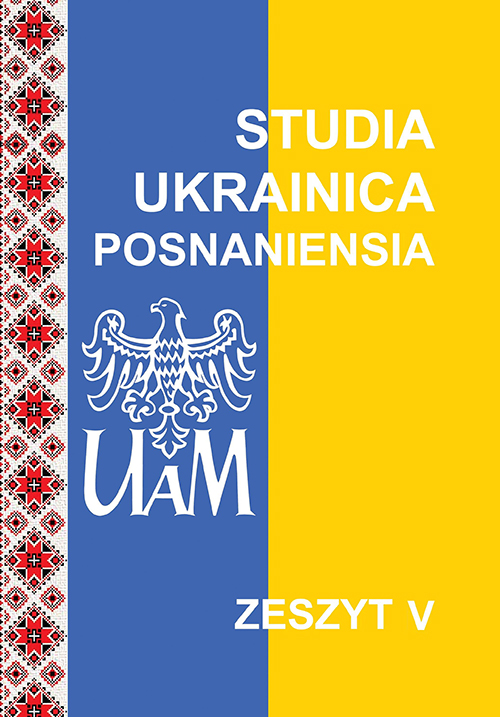АМБІВАЛЕНТНІСТЬ ПЕРЕКЛАДУ БОГОСЛОВСЬКОГО ТЕКСТУ (ПРИКЛАД СИНТАГМАТІОНА ПРО СІМ СВЯТИХ ТАЙН ГАВРИЇЛА СЕВІРА, 1603 р.)
AMBIVALENCE OF THEOLOGICAL TEXT TRANSLATION (THE CASE OF SYNTAGMATION ON THE SEVEN HOLY SACRAMENTS BY GABRIEL SEVEROS, 1603)
Author(s): Andrii YasinovskyiSubject(s): Christian Theology and Religion, 17th Century, Translation Studies
Published by: Uniwersytet Adama Mickiewicza
Summary/Abstract: In 1603, in terms of activities of the Ostroh cultural and educational centre (Volhynia), a translation to the middle Ukrainian language (“prosta mova”) of the Syntagmation on the Seven Holy Sacraments by Gabriel Severos, a Greek theologian, religious leader, and Metropolitan of Philadelphia, has emerged. The Ukrainian version of text contains a number of loci where the interpreter uses simultaneously two Ukrainian correspondences in lieu of the single Greek word. This can be explained, first of all, by the dual cultural orientation of contemporary Ruthenian society settled on the territory of Rzeczpospolita which was determined by Byzantine and Latin influences. Therefore, the translator once in a while provides two correspondences alongside for better understanding by the supporters of both cultural models. On the one hand, Ukrainian theological and philosophical terminology in the early 17th century was not elaborated and unified yet. On the other hand, the translator chooses such a communication strategy that provides an adequate perception of each potential recipient. So the “product” of the interpreter appears to be ambivalent and perceptable to representatives of both traditions.
Journal: Studia Ukrainica Posnaniensia
- Issue Year: 5/2017
- Issue No: 5
- Page Range: 73-80
- Page Count: 8
- Language: Ukrainian

